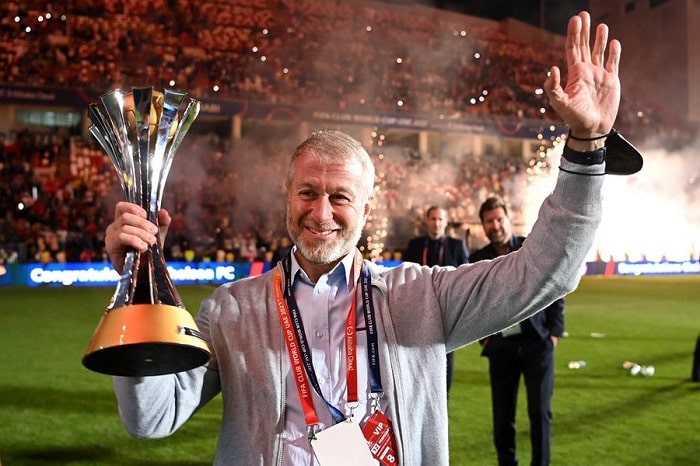The sale of Chelsea will be put on hold after owner Roman Abramovich had his assets frozen by the UK government on Thursday.
The news comes just a week after the Russian oligarch announced the sale of the club due to the unrest his position was bringing to the club.
Chelsea have been granted a special sporting licence to be able to continue trading as a football club, but measures have been put in place, including a ban on selling tickets with only season-ticket holders permitted to attend matches.
A statement from the UK government added: “Given the significant impact that today’s sanctions would have on Chelsea Football Club and the potential knock-on effects of this, the government has this morning published a licence which authorises a number of football-related activities to continue at Chelsea.
“This includes permissions for the club to continue playing matches and other football-related activity which will in turn protect the Premier League, the wider football pyramid, loyal fans and other clubs.
“This licence will only allow certain explicitly named actions to ensure the designated individual is not able to circumvent UK sanctions.
“The licence will be kept under constant review and we will work closely with the football authorities.”
With the move, Abramovich’s assets are frozen, a prohibition placed on transactions with UK individuals and businesses and a travel ban and transport sanctions imposed.
The government added that Abramovich, whose net worth is reportedly in the region of £9.4 billion, is “one of the few oligarchs from the 1990s to maintain prominence under Putin”.
Abramovich has previously been photographed with Russian president Vladimir Putin, and while it was claimed the 55-year-old has no involvement in politics, a spokesperson for the Blues owner suggested to the Press Association that he was “trying to help” achieve a peaceful resolution to the conflict in Ukraine.
However, Abramovich later confirmed he had taken the “incredibly difficult” decision to put the club up for sale and donate the net proceeds to the victims of the war.
A statement released via Chelsea said a sale “will not be fast-tracked but will follow due process”, adding he will not be asking for loans to be repaid by the club, with the move coming amid the threat of sanctions against Russian businesses and high-profile wealthy individuals.
Swiss billionaire Hansjorg Wyss and American investor Todd Boehly were fronting a consortium to bid for the club, while UK billionaire and Chelsea fan Nick Candy was reportedly preparing an offer.
However, the sanctions placed upon Abramovich mean a sale can no longer go ahead, while transactions such as player transfers and new contracts would appear to be prohibited.
British prime minister Boris Johnson said: “There can be no safe havens for those who have supported Putin’s vicious assault on Ukraine.”
Posting on social media, UK Secretary of State for Digital, Culture, Media and Sport Nadine Dorries wrote: “To ensure the club can continue to compete and operate we are issuing a special licence that will allow fixtures to be fulfilled, staff to be paid and existing ticket holders to attend matches while, crucially, depriving Abramovich of benefiting from his ownership of the club.
“I know this brings some uncertainty, but the Government will work with the league & clubs to keep football being played while ensuring sanctions hit those intended. Football clubs are cultural assets and the bedrock of our communities. We’re committed to protecting them.”





